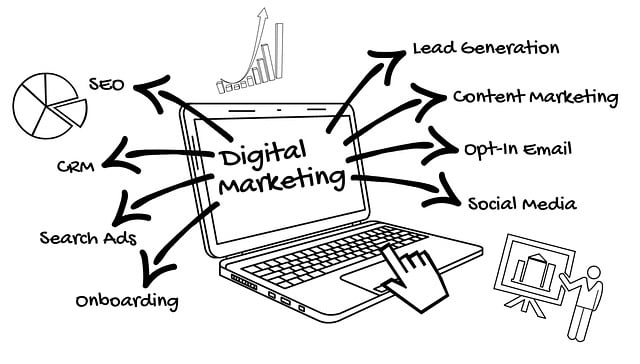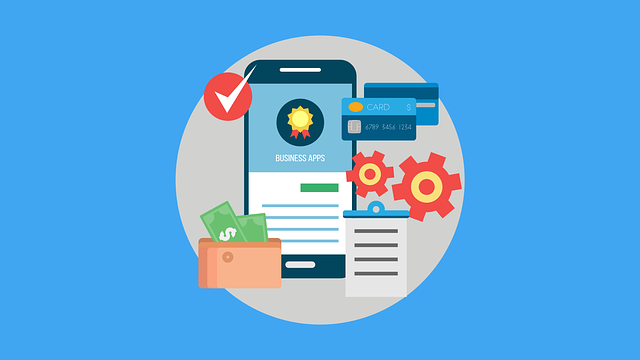Cloud-based AI platforms are transforming the culinary industry by providing AI kitchen automation solutions that assist chefs in creating personalized menus, optimizing recipes, and streamlining operations. Integrating seamlessly with existing equipment, these systems leverage cloud computing power to analyze vast datasets on food preparation, ingredient interactions, and global trends. By freeing chefs from mundane tasks, AI technology allows them to focus on creativity and intricate techniques while ensuring consistent, high-quality dishes. This is particularly beneficial for busy restaurants, offering enhanced efficiency, reduced errors, and improved taste consistency. However, challenges include data privacy, security, compliance with food safety regulations, and staff resistance to change, requiring training and education for successful adoption.
In today’s digital age, cloud-based AI platforms are transforming businesses, and the food service industry is no exception. Understanding how these platforms work is crucial for chefs and restaurateurs looking to leverage AI kitchen automation for chefs. This article explores the potential of cloud AI in revolutionizing food service operations, from streamlining tasks to enhancing customer experiences. We’ll delve into the benefits, challenges, and practical applications, specifically focusing on AI kitchen automation as a game-changer for culinary professionals.
- Understanding Cloud-Based AI Platforms for Business
- The Role of AI in Kitchen Automation for Chefs
- Benefits and Challenges of Implementing AI in Food Service
Understanding Cloud-Based AI Platforms for Business

Cloud-based AI platforms are transforming the business landscape, offering powerful tools for industries seeking efficiency and innovation. For chefs and culinary professionals, this translates to an exciting opportunity in the form of AI kitchen automation. By leveraging cloud computing power, these platforms can analyze vast datasets related to food preparation, ingredient interactions, and culinary trends to assist chefs in creating personalized menus, optimizing recipes, and streamlining kitchen operations.
Imagine a world where AI suggests optimal cooking temperatures based on precise ingredient profiles, or recommends creative flavor combinations by analyzing global cuisine databases. Cloud-based AI platforms make this possible by integrating with existing kitchen equipment and software, providing real-time insights that enhance culinary creativity and productivity. This technology is not just about convenience; it empowers chefs to focus more on the artistic aspects of their craft while ensuring consistent, high-quality dishes.
The Role of AI in Kitchen Automation for Chefs

In today’s digital era, AI kitchen automation is revolutionizing the culinary landscape, transforming the way chefs interact with their workspaces. By leveraging advanced AI platforms, chefs can streamline various tasks, from precise ingredient measurements to optimal cooking times, ensuring consistent and high-quality dish preparation. These cloud-based AI systems offer a multitude of benefits, including increased efficiency, reduced human error, and enhanced flavor consistency.
AI kitchen automation empowers chefs to focus more on creativity and less on tedious, repetitive duties. Automated systems can handle mundane tasks like chopping vegetables or mixing ingredients, allowing culinary professionals to devote their attention to intricate techniques and unique flavor combinations. This technology is a game-changer for busy restaurants and catering services, where speed, accuracy, and taste consistency are paramount.
Benefits and Challenges of Implementing AI in Food Service

Implementing AI and kitchen automation for chefs in the food service industry offers numerous benefits, revolutionizing the way meals are prepared. AI algorithms can analyze vast amounts of data to optimize recipes, predict customer preferences, and streamline inventory management. Automated systems can also reduce human error, ensuring consistent food quality and presentation. Moreover, AI enables efficient task delegation, allowing chefs to focus on creative aspects while letting machines handle repetitive, time-consuming tasks. This technology promises enhanced productivity, cost savings, and improved customer experiences.
However, challenges exist when integrating AI into the kitchen environment. Data privacy and security are paramount concerns, as AI systems rely on extensive customer and ingredient data. Ensuring compliance with food safety regulations while implementing automated solutions requires meticulous planning. Additionally, resistance to change from staff members who may be unfamiliar with new technologies could hinder adoption. Training and education are essential to address these challenges, ensuring that the culinary team understands and embraces AI kitchen automation for chefs as a tool to elevate their craft rather than replace their expertise.
Cloud-based AI platforms are transforming the food service industry, offering chefs innovative tools for kitchen automation. By leveraging AI, businesses can streamline operations, enhance efficiency, and improve customer experiences. However, successful implementation requires careful consideration of both benefits and challenges, such as data privacy concerns and initial investment costs. As these technologies continue to evolve, embracing AI kitchen automation could be the key to staying competitive in the dynamic culinary landscape.
